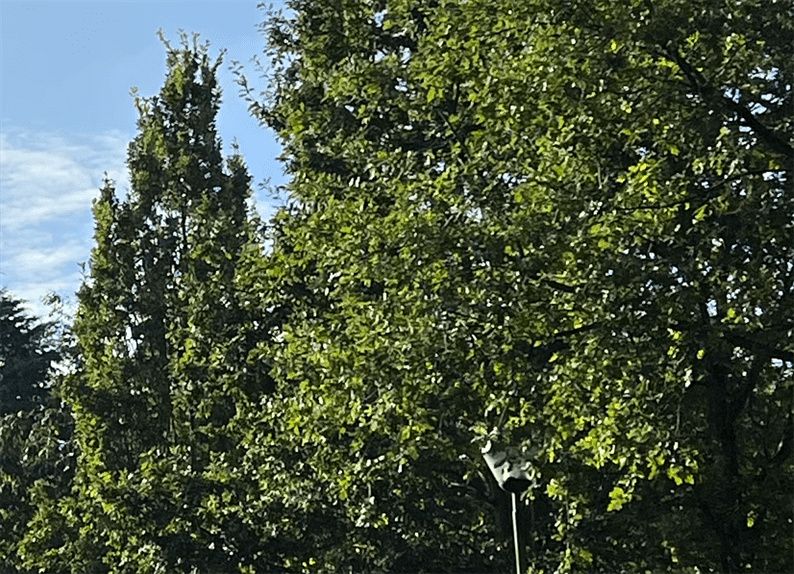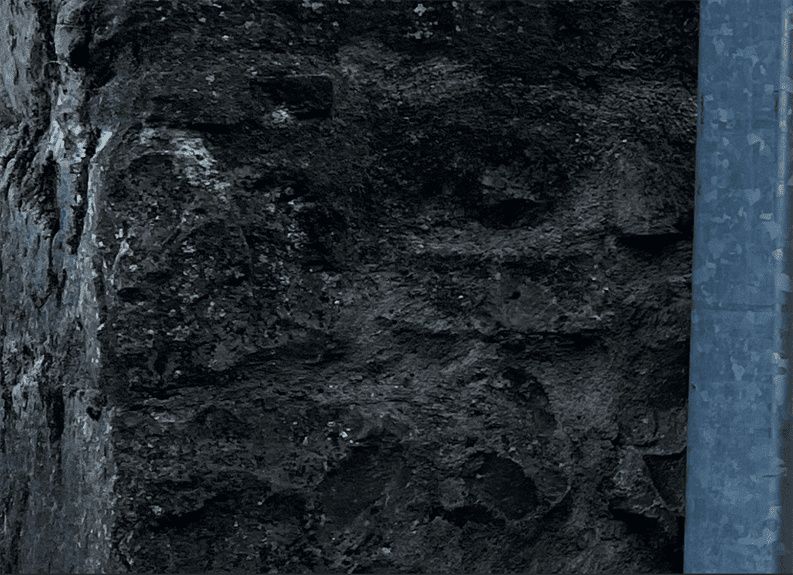Apple iPhone 13 Pro vs Google Pixel 5: These cameras shouldn’t be so competitive
The recently-released iPhone 13 Pro has had an incredible amount of praise bestowed upon it, with some deeming it the best smartphone camera on the market. Given that the Google Pixel 5 has managed to hang on with arguably outdated camera hardware for so long, we figured that we should put it to the test against the iPhone 13 Pro — right before the Google Pixel 6 series is set to come out. All photos in this article were taken with point and shoot, no tap to focus was used, nor was the exposure modified.
![]()
Apple iPhone 13 Pro vs Google Pixel 5: Main Camera
The Google Pixel 5 boasts some pretty unimpressive camera specifications. It packs a 12.2MP IMX363 as the main camera sensor, which has been available in smartphones for nearly four years now. In contrast, the iPhone 13 Pro boasts the latest 12MP Apple sensor, and the company always prides itself on its cameras. With the iPhone 13 Pro, Apple’s marketing team focused heavily on its “all-new camera sensors” which, in the case of the main 12MP camera, is a larger 1/1.65 inch sensor, with a faster f/1.5 aperture too.
Based purely on hardware capability, nobody could be faulted for assuming that the iPhone 13 Pro would wipe the floor with the Pixel 5. The sensor in the Google Pixel 5 is massively outdated, but still, we see it keeping up with some of the best cameras on the market to date.
The thing is, the software is just as important as hardware, and that is what has kept Google afloat with an aging sensor. How do these devices perform against each other? Note, all photos in this article are compressed, but overall detail and lighting can still be examined.




The straightforward shots above produce a pattern that I’ve seen consistently throughout my time using the iPhone 13 Pro. While the iPhone 13 Pro is a technically impressive camera, it loves to pump up the vibrancy and the brightness of photos. The Costa coffee cup is a lot brighter, but the Pixel 5 was a lot more accurate.
As for the photo of the plants, the same happens where the iPhone 13 Pro overly saturates the photo, whereas the Pixel 5’s darker photo is a lot more accurate for the scene. Here’s another example of where that happens.

The Pixel 5 is a lot more accurate in the above photo of the orange flower. The flower is way too oversaturated in the iPhone 13 Pro’s shot, and the photo is too bright as well. In contrast, the Pixel 5 captures the situation perfectly. The color and brightness are both accurate.

The Pixel 5 produces photos that are closer to what I actually see with my own eyes
While the Pixel 5 is a lot more accurate at taking photos and can adjust better to darker scenes, it’s a sign that it will likely struggle in night shots. It’s not taking in a lot of light, and part of that is on account of the much smaller sensor size. In fact, the sensor is probably part of the iPhone 13 Pro’s brightness problem — Apple says the iPhone 13 Pro captures 2.2 times more light than the 12 Pro, which makes sense. Light collection is great for dark shots, but more light collection isn’t really necessary in daytime shots or well-lit scenarios.


Even when pixel-peeping, there’s not a world of difference between the two sensors in daytime shots. The iPhone 13 Pro slightly edges out the Pixel 5 in some scenarios, but honestly, the winner could go to either in some of these shots. The iPhone 13 Pro’s larger sensor creates a more natural depth-of-field effect, whereas the Pixel 5 relies on software processing for a bokeh background.

The Pixel 5’s smaller sensor size creates a less dramatic depth-of-field effect, whereas the iPhone 13 Pro blurs close to the camera and behind the subject in order to focus on the coffee cup. The iPhone 13 Pro’s brighter sensor is again at play here, and in my opinion, it actually better captured the scene. The level of detail between the two is about the same, but the iPhone 13 Pro’s larger sensor helps it stand out.
In low light, it’s sadly not really much of a contest. The iPhone 13 Pro completely dominates the Pixel 5 in night-time photography. The Pixel 5 really struggles to keep up thanks to its smaller sensor, over-brightening in some areas while also creating a much noisier shot. There’s not a lot really to say here. The Pixel 5 is fine, but the iPhone 13 Pro is just so much better. The iPhone 13 Pro, just like the Pixel 5, will automatically enter night mode and increase the exposure time for dark shots.




Apple iPhone 13 Pro vs Google Pixel 5: Ultra-wide
The ultra-wide camera was a new addition to the Google Pixel 5, although it’s nowhere near as good as the primary camera sensor. It still puts up a fight against the iPhone 13 Pro, but again, the image quality really falls off when we stray from Google’s ideal conditions.
We’ve seen examples of the iPhone 13 Pro overexposing the sky in the backgrounds of photos, but even the Pixel 5 does it here too.




Given that the ultra-wide camera has never been a priority for Google in the past, it makes sense that it lags behind. The primary sensor has always been the company’s main focus. The iPhone 13 Pro’s wide-angle is also much wider than the Pixel 5’s, letting you fit even more into the shot than you otherwise would normally be able to. Overall, it’s a hard win to the iPhone 13 Pro here. The Pixel 5’s camera is serviceable, but it’s completely outclassed.
Apple iPhone 13 Pro vs Google Pixel 5: Telephoto
So, the Google Pixel 5 doesn’t actually have a telephoto camera. Instead, the company uses a technology called Super Res Zoom. It allows for 2x zoom, although it’s still not as good as a dedicated telephoto lens. In contrast, the iPhone 13 Pro has an actual 3x telephoto camera. What’s interesting is, the 2x zoom of the Pixel 5 is pretty detailed, and looks better than the iPhone’s 3x zoom lens. However, it’s also not as zoomed in, so it kind of misses the main function.


Apple iPhone 13 Pro vs Google Pixel 5: Photography Experience
The photography experience is important — maybe not as important as the photo quality — but still important. The Google Camera application is one of the most sought-after applications for Android smartphones on the XDA forums, and that’s for a number of reasons. Not only does it produce fantastic photos thanks to the company’s HDR algorithm, but the app itself is well made with a lot of features. The Google Pixel 5 has features like astrophotography and Google Lens, along with level indicators for taking photos horizontally and top-down.

In contrast, the iPhone 13 Pro’s app is functional, though not quite as feature-packed. My favorite feature of Google Camera is the levels for top-down shots and for horizontal shots, as it helps to line up photos perfectly. It uses haptic feedback to alert you when you’re holding the phone level and feels good in the hand when taking a photo. The iPhone 13 Pro could do with some features like that, especially since Apple is touting the Pro-level cameras so much now.
Apple iPhone 13 Pro vs Google Pixel 5: Conclusion
![]()
The Pixel 5 sets a fantastic foundation for the Google Pixel 6 Pro to put up a fight against the iPhone 13 Pro
Overall, the Pixel 5 is impressive, but software can only do so much for aging hardware. The Pixel 6’s jump up to a brand new sensor may be what Google needs to get over the Apple camera hurdle, as other manufacturers like Vivo appear to be doing.
- The iPhone 13 Pro has the best-in-class mobile SoC and video recording performance. It also has a fantastic camera, even if there are some exposure problems.
The post Apple iPhone 13 Pro vs Google Pixel 5: These cameras shouldn’t be so competitive appeared first on xda-developers.
from xda-developers https://ift.tt/3FKjNN4
via IFTTT

No comments: